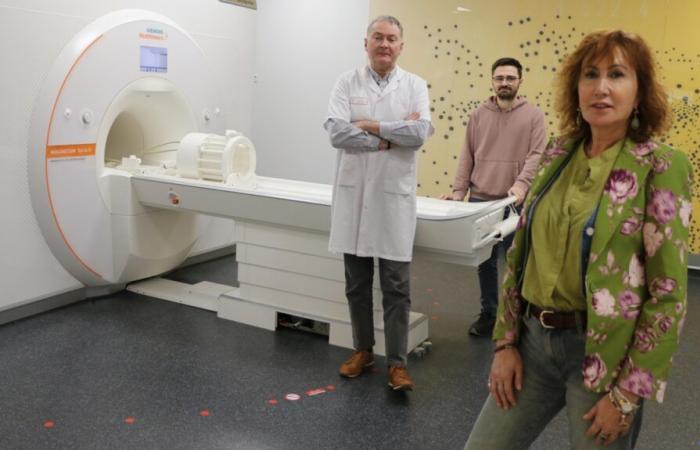Partnership
Using artificial intelligence in the health sector. This is the goal of the joint I3M laboratory (Multi-nucleus, multi-organ metabolic imaging), created in February 2019 by Siemens Healthineers, the CNRS, the University Hospital and the University of Poitiers. The structure brings together around forty people (researchers, engineers, doctoral students, etc.), from two teams from the LMA (Mathematics and Application Laboratory) and the Xlim research institute.
A digital twin to improve care
This partnership with the industrialist made it possible to finance a Cifre thesis, then to install, in November 2019, a 7 Tesla “ultra-high field” MRI platform on the hospital site. Medical imaging equipment that allows both fundamental and clinical research to be carried out. “There are around forty pieces of equipment of this type in the world. And the only one in France is based in Poitiers »insists Professor Rémy Guillevin, co-director of the I3M laboratory. Since its commissioning, more than 5,500 patients have already carried out in-depth examinations.
Researchers from the I3M joint laboratory in front of the 7 Tesla MRI, medical imaging equipment unique in France.
© (Photo NR-CP, Édouard Daniel)
This machine “out of the norm” can generate a digital twin from the patient’s genetic, physiological and environmental data. “This will make it possible to diagnose, by performing a virtual biopsy without making a hole, and to simulate the therapeutic treatment”underlines Christine Fernandez, the other head of the research unit. “The interest is to increase care performance, provide individualized care and reduce ethical difficulties”adds Rémy Guillevin.
“The medicine of the future”
The I3M laboratory team mainly carries out data exploitation for brain-related pathologies: glioma (brain tumor developed in children and adolescents) or Alzheimer’s disease. “The next step is to go to other organs such as the heart, in the case of cardiovascular accidents, or the kidneys”indicates the head of medical imaging.
The possibilities of this digital companion are multiple. “We reduce the margin of error”he says, before warning: “The machine will never replace the radiologist or the doctor. » And the data remains at the same time “anonymous”, “confidential” et “secure”. For Rémy Guillevin as for Christine Fernandez, this in-depth research, made possible thanks to artificial intelligence, represents “the medicine of the future”.
learn more
In addition to I3M, the University of Poitiers is involved in two other joint laboratories on artificial intelligence. On the one hand, the Damia Lab, which brings together the company Einden and the Xlim research institute, is dedicated to indexing and searching using AI in photo databases, audio and video files. On the other hand, @lienor, which links the SRD company and the Lias laboratory, specializes in the integration of new energies and the optimization of networks.






